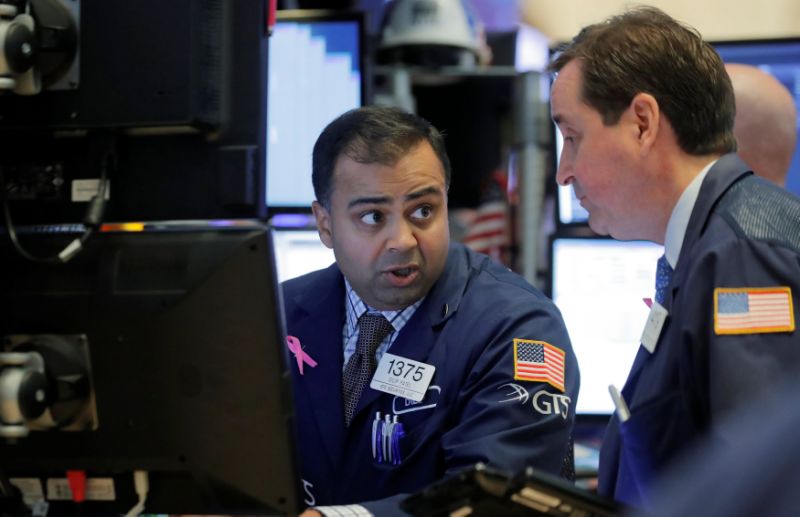
A badly wounded market is eagerly awaiting the return of its trusted friend to hopefully save the day, Mr. Stock Buyback.
With next week seeing a peak number of companies announcing third quarter earnings and considering we are more than half way through the reporting period, stock buyback “blackout” periods will begin to lift. As it does lift, the market could find some much needed support in the form of companies returning to buy their now cheaper stocks.
Deutsche Bank estimates that companies could return next week to buying their typical $15 billion a week in stock.
“That’s the narrative [that returning buybacks will help support stock prices],” SunTrust chief markets strategist Keith Lerner tells Yahoo Finance. “It seems like it would.”
There are often four blackout periods a year coinciding with how many times a company is required to report earnings. Most companies and corporate insiders aren’t allowed to purchase their own shares in the month ahead of the quarterly release.
Companies back in the market for their now cheaper stocks couldn’t come at more crucial time for the market. The Dow Jones Industrial Average (^DJI) tanked more than 600 points on Wednesday amid growing worries about impacts to companies from the U.S./China trade war and rising interest rates. Solid earnings from the likes of Netflix, Caterpillar and Boeing have been largely ignored by investors that are worrying on the global growth outlook for 2019.
The S&P 500 (^GSPC) has now pulled back 10.6% since its peak on Sept. 21, with many sectors down by a greater amount. SunTrust’s Lerner points out the latest correction represents the 17th pullback of at least 5% since the beginning of this bull market.
Suffice it to say if the market doesn’t move higher against the backdrop of renewed buyback activity, it will be a serious red flag.
The mighty buyback has proven to be a major prop to the market in recent years as companies look for places to spend their growing cash piles. It has had the effect of reducing the amount of shares in circulation, which by its nature has driven up prices. Further, it has reduced the number of shares outstanding for individual companies, helping to boost earnings per share figures.
Executed buybacks have tallied a massive $4.5 trillion during this leg of the bull market, according to JP Morgan data. The investment bank saw $800 billion in stock buybacks coming into 2018, but now expects that figure to be bumped higher amid the latest bout of market volatility. JP Morgan expects there to be about $900 million to $1 trillion in buybacks this year.
“With the largest one-way buyer returning in size to the market post earnings, we expect liquidity to improve and equities to move higher,” writes JP Morgan U.S. equity strategist Dubravko Lakos-Bujas.
Hopefully, for the sake of the bulls.
























